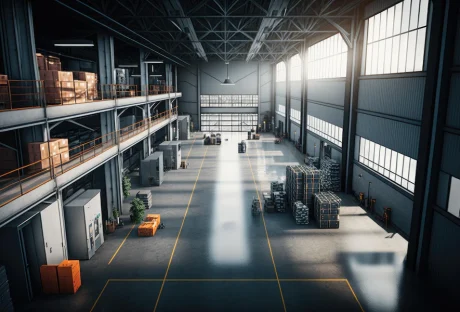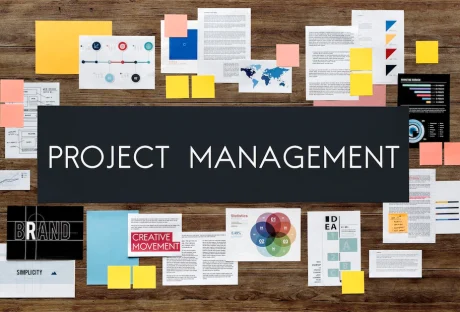As a contractor or builder, you know how important it is to control moisture, dust, and debris at a construction site.
Heavy-duty polyethylene sheets offer versatile, cost-effective solutions that provide protection and containment on the job site. These durable polyethylene sheets can be a construction crew’s best friend!
Heavy-duty polythene sheets are typically made from low-density polyethylene (LDPE) or linear low-density polyethylene (LLDPE). These materials create sheets that are exceptionally tough, flexible, and water-resistant. Polythene sheets are available in a wide range of thickness gauges, with heavier grades like 500-gauge or 750-gauge used for demanding construction conditions.
The multilayer, cross-laminated structure of heavy-duty polythene sheets provides exceptional tear and puncture resistance. They won’t rot, mildew, or degrade when exposed to weather and ultraviolet light. You can count on these rugged polyethylene sheets to deliver outstanding performance across a broad range of applications on the building site.
In this article, we’ll explore the many ways heavy-duty polythene sheeting can make your construction projects cleaner, safer, and more efficient. These sheets offer proven protection for moisture management, dust/debris control, concrete curing, and temporary structures.
Let’s take a look at the benefits heavy-duty polythene sheets can provide on your job sites!
Moisture Barriers
Controlling moisture is critical in any construction project. Fortunately, heavy-duty polythene sheets can provide an effective barrier against water and dampness. The waterproof polyethylene material blocks liquid moisture and vapor transmission.
Below Grade
Installing polyethylene sheeting under concrete slabs is an excellent way to prevent moisture from migrating up through the concrete over time.
The impermeable polythene layer acts as a barrier that blocks ground moisture from passing through the slab foundation. This helps prevent moisture-related issues like mildew, cracks, and buckling. Be sure to overlap seams and seal with waterproof tape.
Wall Wraps
Wrapping walls in polythene sheeting protects the structure from bulk water intrusion during construction. The water-resistant polyethylene film acts as an air and moisture barrier. This keeps wall assemblies dry until the final weather-resistant barrier can be installed. Properly taped seams prevent moisture ingress and air infiltration for better energy efficiency.
Curing Blankets
Proper curing is essential for concrete to achieve its full strength and durability. Heavy-duty polythene sheets can provide an ideal curing environment.
Fresh Concrete
Covering fresh concrete with polythene sheeting helps retain moisture and prevents the slab from drying out too quickly. This allows the concrete to hydrate thoroughly so that it can be set properly. The polythene curing blanket minimizes evaporation, which can cause shrinkage cracking. It also protects the slab from weather elements like rain, wind, and sun.
Pre-cast Elements
Heavy-duty polythene sheets are also ideal for curing pre-cast concrete elements like columns, beams, walls, and stairs. Covering the precast molds with polythene sheeting retains the moisture to allow the concrete to fully cure. This accelerates strength gain, allowing the molds to be stripped for re-use more quickly. The impermeable sheets also prevent surface drying defects.

Containment and Dust Control
Heavy-duty polythene sheets are invaluable for containing hazardous dust and debris on the construction site. The durable polyethene barriers keep workers safe and the site clean.
Asbestos Abatement
Installing polythene containment walls and ceilings seals off the work area during asbestos removal. This prevents fibers from contaminating other areas of the building. Polyethylene flooring also contains fallen debris. The poly barriers ensure proper disposal while protecting the health of workers and occupants.
Lead Paint Removal
Lead paint removal requires similar containment. Heavy-duty polyethylene containment keeps leading paint chips localized so they can be safely collected and disposed of. The containment area also prevents workers from being exposed to hazardous lead dust.
Silica Dust
Cutting and grinding concrete or masonry materials creates extremely fine silica dust. This dangerous respirable dust requires containment. Heavy-duty polyethene sheeting creates an enclosed area with reduced air circulation to contain the silica dust. This improves air quality and prevents workers from breathing in the dangerous particles.
Temporary Structures
Polythene sheets offer a quick, cost-effective way to create temporary structures for protection from the elements.
Equipment/Material Covers
Heavy-duty polyethylene sheets make great covers to shield equipment and building materials from rain, dirt, and debris. Simply build a basic frame from lumber or PVC pipe and stretch the polythene sheet tight over the top. This creates an inexpensive structure to keep valuable items safe from weather and theft. The transparent material even allows light through for better visibility.
Temporary Roofing
Large polythene sheets can also serve as temporary roofing during construction. Attach the polyethene sheeting to roof trusses to provide immediate cover until permanent roofing is installed. This allows interior work to progress while keeping the structure watertight. Polythene roofing protects the building from rain and humidity damage.
Final word
Heavy-duty polythene sheets truly are a construction site’s best friend. As you have seen, they are a solution for many construction cases. As you tackle your next building project, be sure to keep heavy-duty polythene sheets on hand.
Major manufacturers like Polystar Plastics offer a wide selection of polyethylene sheeting in various grades and sizes. Their experienced team can recommend the ideal polythene products for your specific applications.
With the proper heavy-duty polythene sheets, you can increase efficiency and minimize hassles on the worksite. Protect your projects and your crew with these high-performance polyethene barriers. Let polythene sheeting make your next construction job smooth, clean, and successful!
Read Also:























